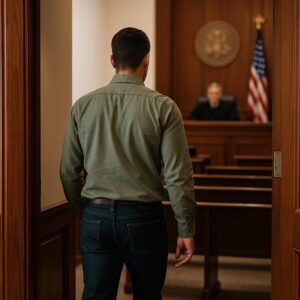Although holiday weekends are times of relaxation for much of the public, police officers work overtime during holidays, in large part because “relaxation” for many people means binge drinking. More police officers are out during holidays in large part because more drunk drivers are out. The job of the police officer pressed into service for the holidays is to arrest DWI suspects. Every holiday weekend sees dozens of DWI arrests in Houston alone.
DWI Checkpoints
Not long ago, DWI checkpoints were illegal in Texas because no state law authorized them. Even then, police often found a way around the law – they might, for example, substitute a real checkpoint with a sign announcing a fictitious checkpoint, and then pull over drivers who made illegal U-turns to avoid the fictitious checkpoint. This practice was legal because committing an illegal U-turn was considered “probable cause” to make a traffic stop.
Nowadays, Texas police can set up real DUI checkpoints to check every driver along the road for intoxication. The process typically usually takes only a few seconds, during which time an officer will smell the breath of the driver while he is still inside the car and peer inside the car looking for open containers of alcohol. If there is not obvious evidence of intoxication, the driver is free to go on his way. If the officer suspects intoxication, he will treat it as a routine DWI traffic stop by performing a sobriety test on the driver.
Implied Consent
A DWI stop in some ways resembles a game of “chicken”. If an officer asks you to submit to a breathalyzer test (or, in cases of suspected drugged driving, a blood test), you are entitled to refuse the demand. If you refuse, however, the Texas implied consent law will allow the state to suspend your driver’s license for up to six months for a first offense. Yet the state still might win a DWI conviction even without test results using the officer’s testimony that he smelled alcohol on your breath and that you were driving erratically. Your driver’s license can be suspended simply for refusing the test, even if you were innocent of DWI.
If the officer obtains a search warrant, he can force you to submit to testing. Because search warrants normally take time to secure, however, even if the forced testing indicates that you were drunk at the time you were tested, you could argue that you had consumed alcohol all at once immediately before you were pulled over, and that you weren’t yet drunk yet at the time you were pulled over even though you were drunk by the time the test was administered.
“No Refusal” Weekends
“No refusal” weekends generally take place during holiday periods (not only weekend holidays). They are designed to deter people from drunk driving by making it easier for an officer to obtain a search warrant when the suspect refuses to consent to testing. If you refuse to be tested, the officer might be able to obtain a search warrant by simply calling up the judge on his cell phone and obtaining verbal authorization. If this happens, the officer can force you to submit to testing on the spot.
Getting Help
A Houston DWI charge doesn’t always result in a conviction – about 30 percent of defendants win an acquittal or conviction for a lesser offense. Winning an acquittal often comes down to your choice of legal representation. Mario Madrid is a certified specialist in Criminal Law with 20 years of experience, and he is a proud member of the National College of DUI Defense Attorneys. If you have been charged with DWI in the Houston metro area, call Madrid Law, PLLC at 713-877-9400 for a free initial case consultation.




